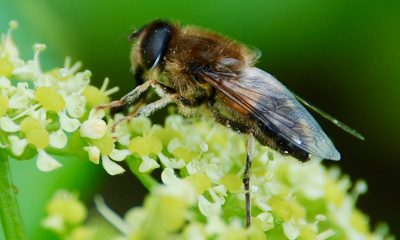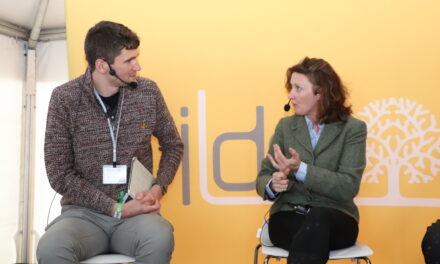UCC students’ modelling shows the potential, says Laura Byron, who is studying for a MSc in Co-operatives, Agri-Food and Sustainable Development in UCC.
Ireland does not yet have a honey producers’ co-operative, but that could change if farmers listen to Cork students.
A group of UCC students this year set up a hypothetical co-operative to find out if small Irish honey producers would be better off working together, as they do in other countries.
The findings are encouraging and farmers could join the proposed co-op by setting aside land for beehives, earning more income in the process and contributing more to biodiversity.
The hypothetical honey co-op was set up using guidelines from the Irish Co-operative Organisation Society and its aim was to buy honey from co-op members, package it, and create a high value honey brand to be sold. The students found that at least seven people with similar economic needs would need to come together if the proposal was to work.
The test run was conducted by four students from UCC’s Centre of Co- operative Studies who are studying regenerative agriculture, a type of farming that increases biodiversity, enriches soils, improves watersheds and boosts ecosystems.
Bee Co-Ops common in other countries
Celia Cremin, Sophie Sibanda, Ignitious Moyo and yours truly found that the success of the honey co-op model depended on whether or not it would give its members a return on their investments. Expected sales generated from 20 hives could amount to €3,314 per year.

– Laura Byron is studying for a MSc in Co-operatives, Agri-Food and Sustainable Development in UCC
“The results of this research may pique the curiosity of farmers and beekeepers alike. In the face of the threats posed by climate change, regenerative agriculture may prove pivotal in securing a sustainable food system for the future,” said Celia.
“Integrating honey production into farming systems would not only enhance soil function and biodiversity, but also provide farmers with an additional source of income. Despite there being multiple thriving cases of honey producer co-operatives in other countries, there has yet one to be formed in Ireland,” she added.
Sophie commented: “There is a shared need in the farming community to address biodiversity decline, and honey production could deliver on this while also providing an additional income support to producers.”
Regenerative agriculture has amassed a considerable following across the globe, with large corporates like Danone and Nestlé now rewarding farmers who adopt regenerative practices.
Research quoted by the UCC students included 2019 data from the Food and Agricultural Organisation of the United Nations highlighting the role played by pollinators and how honeybees in particular can help regenerate land and are an indicator of environmental health. Their decline is often a sign of wider environmental problems.
The students proposed that farmers who dedicate land for honey could become co-op members. Beekeepers would also be welcome.
The students are convinced that co-operative business ideas have the potential to advance regenerative agriculture in Ireland.
• Laura’s article summarises findings from an academic assignment she wrote titled ‘Sweet Partnership: Honeybees, Regenerative Agriculture, and the Co-operative Business Model’.
• For more on UCC’s Centre for Co-operative Studies, visit: https://www.ucc.ie/en/ccs/
• Twitter: @UCCCoopStudies. Also on Facebook and Linkedin.





